#tollywood movie in hindi
Explore tagged Tumblr posts
Text




Varun Dhawan & Samantha Ruth Prabhu for the launch of Citadel: Honey Bunny
#bollywood#indian cinema#bollywood movies#indian#actress#beautiful women#beauty#bollywoodgifs#females#gorgeous women#citadel#citadel honey bunny#varun dhawan#prime video#hindi cinema#samantha ruth prabhu#samanta ruth prabhu#telugu#tollywood#tamil girls#south indian movies#hindi#indian movies
38 notes
·
View notes
Text




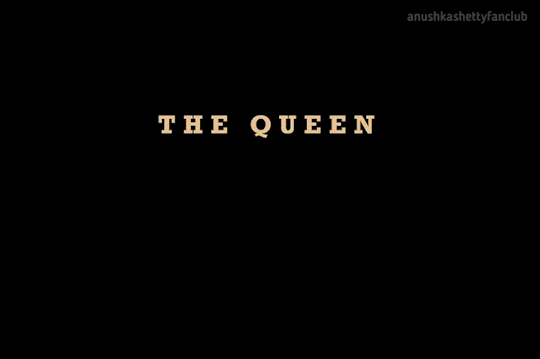


Menacing look of Lady Superstar Anushka Shetty in GHAATI 🔥
#anushka#anushka shetty#ghaati#tollywood#kollywood#mollywood#sandalwood#bollywood#telugu#tamil#malayalam#kannada#hindi#anushka shetty gifs#anushkashettyfanclub#gif#gifs#indian movie#indian movies#indian#south indian#actress#southindianmovies#lady superstar anushka shetty#queen#indian cinema#cinema#desi#indian actress
13 notes
·
View notes
Text
This playlist is very special to me because I've always been a sucker for eye contact (lots and lots of eye contact) (I'm very old school that way)
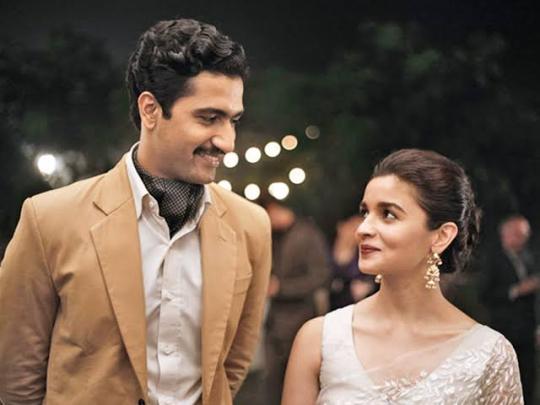

And please please suggest me songs if I missed any 🥺 (specially non hindi music)
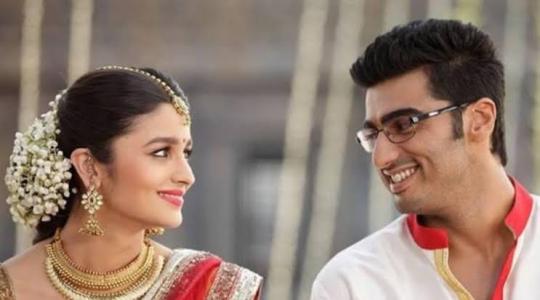

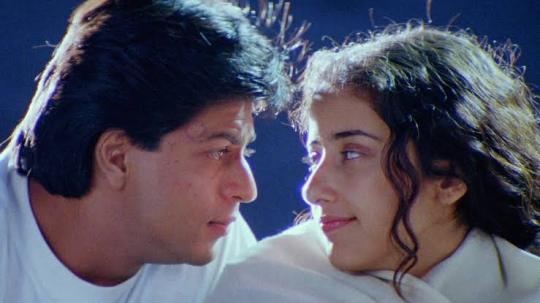
#hindi cinema#desi dark academia#indian dark academia#desi#bollywood#indian aesthetic#desi academia#love songs#love#bollywood romance#romanticsongs#romance#indian cinema#indian academia#desi movies#desi aesthetic#desi music#tollywood#Spotify
101 notes
·
View notes
Text
Navigation
We reblog any and all posts about desi cinema: gifs, reviews, pics, fandom, fashion - you name it, we're about it. If you would like us to reblog your post, drop us an @!
That said, this blog is focused on movies. We reblog posts about movies as well as celebrity fashion photoshoots, but aside from that, we do not reblog irl or bts photos.
Yes, we use the queue.
We do our best, but if there's a specific movie or topic you'd like us to reblog content for, drop us an ask!
For information about the blog, including announcements and picture credits, see dailydesicinemabloginfo.
In an attempt to keep up with post volume (and because we're not super familiar with every single Indian movie), we do not tag reblogs.
To find a specific type of post, go to the blog archive and sort by post type (on the upper left).
To find a specific tag, or to search for specific content, go to the blog homepage and use the search bar on the upper left.
#desi#desi cinema#bollywood#tollywood#hindi movies#telugu movies#tamil movies#movies#cinema#films#blog announcement#dailydesicinemabloginfo
2 notes
·
View notes
Text
#web series#bengali#tollywood#movies#film#indian cinema#kolkata webseries#bengali cinema#bengali books#bengali song#hindi#bengali culture#my hero academia#tranding
2 notes
·
View notes
Photo

Jackie Shroff from the sets of Jailer
20 notes
·
View notes
Text
Attention: just because Netflix only has the Hindi dubs of some South Indian Films, that doesn’t make it Bollywood!!! If it was made in south India, it’s a South Indian film and should be referred to by the name used for films from its respective location/language, ex tollywood, sandalwood, etc.
#Also I highly recommend watching these movies in their original language if you can find them with subtitles in your language.#or a language you speak#I’ve seen both the OG Telugu version of Baahubali 2 and the Hindi dub and the Hindi version takes hella liberties with the dialogue#mind you I’m judging by the subtitles but yeah the Hindi version was definitely different#even if you don’t speak the languages and are relying on subs w#either way#I’d recommend the OG#baahubali is tollywood not Bollywood#Netflix only having the Hindi dub doesn’t make it Bollywood
2 notes
·
View notes
Text
लोकप्रिय कन्नड़ अभिनेता से लेकर कैदी नंबर 6106 कैसे बनें Darshan Thoogudeepa? अपने ही फैन की हत्या के आरोप में कैसे फंस गया सुपरस्टार?
लोकप्रिय कन्नड़ अभिनेता दर्शन इस वक्त काफी मुश्किलों मे ंफंसे हुए हैं। अभिनेता दर्शन को उनके प्रशंसक ‘डी बॉस’ के नाम से जा��ते हैं। 9 जून को सुमनहल्ली में एक नाले के पास उनके कट्टर प्रशंसक रेणुकास्वामी का शव मिला और इस हत्या के आरोप में दर्शन को गिरफ्तार किया गया। आखिर एक फैन की हत्या के पीछे दर्शन कैसे शामिल हुए इन सब की जांच चल रही हैं। इसके बाद 10 जून को चार युवकों के आत्मसमर्पण और कबूलनामे में…
View On WordPress
#Actor Darshan#Actor Darshan arrested#Bollywood#Kannada actor arrested#kannada movie#Karnataka police#latest news in hindi#Renukaswamy murder accused#Renukaswamy murder case#Tollywood#हिंदी न्यूज़
0 notes
Text
Alternate Text: screenshot of a Tweet from the account PopBase that says " 'Naatu Naatu' wins the Golden Globe award for Best Original Song."
DESERVED

#this is so late (surprised it hasn't been mentioned by anyone when the globes were happening) but i'm still so psyched about this!!#congrats to my telugu siblings!! one zillion percent deserved!!#y'all gotta watch this movie it's on netflix and it's dubbed in like a gazillion official languages. no excuse#rrr#tollywood#tollywood movies#naatu naatu#golden globes#watched the Hindi dub with my family and we were all so invested... can't imagine how awesome it must be in the original Telugu#(alas I don't speak Telugu :/)
489 notes
·
View notes
Text
Varisu presents a well-executed crossover of genres, effectively utilizing each element to its full... To Read & listen the entire review of varisu click on this link & enjoy the review on substack
#varisu#vijay thalapathy#rashmikamandanna#tollywood movies#tollywood#family drama#family movies#drama movies#comedy movies#action movies#romance#indian movies#movie review#2023 movies#south cinema#tamil movies#hindi dubbed#movie lovers#entertainment#prime video#honest opinion
0 notes
Note
🎵'Tis the music ask again! Tell me about 5 songs you actually listen to. Proceed and send this to 5 of your most devoted followers 😌🎵
Thanks to you I put Happy Gary ᕕ( ᐛ )ᕗ now everywhere. A great source of joy.
hey vic!!!!! thanks so much for the ask and i'm so sorry that this has taken me approximately forever to answer. also, hell yeah, happy gary!!!!!!!!!!!!!!!
anyway! five songs i really, really, really like to listen to:
Honey by Magic Man - this was my top song last year and i still listen to it a bunch this year. it's just such a good song in generall and at this point it's a huge comfort song (i'll play it on loop to calm down, etc.)
Haircut by Chaz Cardigan - this song makes me feel seen and also reminds me that i can change any time i want
Molotov Girls by The Zolas - i am a huge fan of drums in my songs and imo this one is very good for this and has a lot of other fun/nice instrumental parts
Tha Melagholiso - Otherview Remix - MAD VMA 2019 - by Katy Garbi, Alcatrash, Otherview - i like to listen to greek music to feel more connected to the culture and this is by far my favorite. it's an all around great song and gets be hyped/motivated if i'm feeling down
Naatu Naatu by Rahul Sipligunj, Kala Bhairava - this is from the tollywood movie RRR (highly recommend watching it!!!) and this song just goes so hard and i do play it to get myself motivated, similar to number four, lmao. also, the telugu version of the song is so much better than the hindi version, i don't make the rules
(tbh, this was so hard because i listen to a lot of music and i'm so bad at picking faves and such but it was also so much fun, thank you!!!!!)
#all of these songs (other than the telugu version of naatu naatu) are on spotify if people are interested#if anyone wants an mp3 of naatu naatu hmu 👀#and thank you so so so so much for the ask!!!!!!#i always get so excited to see younin my notifs and ask box :)))))#and this one was a particularly fun time!!!!!#thanks vic :)))#zip answers#euphoric-cha0s
5 notes
·
View notes
Text
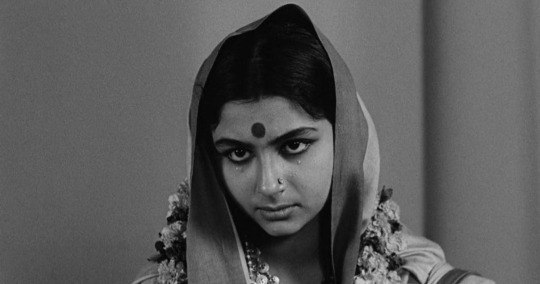
Devi (1960, India)
One year following his stunning Apur Sansar (The World of Apu) (1959), director Satyajit Ray reunited actors Sharmila Tagore and Soumitra Chatterjee. By this point, Ray was no longer the studious yet inexperienced hand that shepherded the Apu trilogy to its conclusion. But his lead actors were still only starring in their second-ever film. Bengali cinema (Tollywood, based in West Bengal) had a proud history before Ray’s Apu trilogy (1955-1959), but now had caught the attention of audiences beyond India – disproportionately so, as Bollywood (Hindi cinema, based in Mumbai) has always been the largest part of the nation’s film industry. Unlike some of the most popular Tollywood and Bollywood films of the time (and now), Ray never showed interest in romantic-musical escapism and instead dared to make films challenging India’s caste system, sexism, and religious fanaticism.
In his first work addressing religious fanaticism (and arguably his first truly political film) comes Devi, also known by its English-language title as The Goddess. Unlike 1965’s Mahapurush (The Holy Man), which also covers the same topic, Devi is thoroughly a drama, with no hint of comedy or satire. The film’s somber tone did not sit well with general Indian audiences used to lighter fare, and its willingness to criticize the extremes of Hindu religiosity saw the film’s harshest critics deem it (and Ray) as anti-Hindu. If released today, Devi almost certainly would receive a similar, if not more intense, backlash from groups and individuals in India criticizing it out of bad faith.
Somewhere in a rural town in nineteenth century Bengal, younger brother Umaprasad (Soumitra Chatterjee) is ready to depart for Kolkata for university and to study English. Umaprasad’s family is wealthy, with numerous servants tending to their multistory mansion. All is well in their richly-furnished, well-kempt home as he leaves his teenage* wife Dayamayee‡ (Sharmila Tagore) to take of his aging father/her father-in-law Kalikinkar Choudhuri (Chhabi Biswas). One night, Kalinikar awakens from a marvelous dream. An adherent of the goddess Kali, his visions lead him to believe that his daughter-in-law is Kali’s physical incarnation. Upon awakening, he rushes to Dayamayee and falls to his feet in worship. Dayamayee’s life as Umaprasad’s wife has ended. Against her will, she becomes an object of religious devotion as word spreads of Kalikinkar’s dream and a supposed miracle shortly thereafter.
Devi also stars Purnendu Mukherjee as Umaprasad’s brother, Taraprasad; Karuna Banerjee as Harasundari, Taraprasad’s wife; and Arpan Chowdhury as Taraprasad and Harasundari’s son (Dayamayee’s nephew).
Where a year prior Apur Sansar was Soumitra Chatterjee’s movie, Devi is likewise Sharmila Tagore’s. Tagore, sixteen years old upon the film’s release year, again finds herself in a role with little dialogue, even less than her supporting role in Apur Sansar. The moment Tagore’s Dayamayee becomes a devotional figure, her dialogue and ability to exert her own agency disappears. Until Umaprasad returns home shortly after the halfway mark, so much of Tagore’s performance before and after seems spliced from a great silent film. Perched on a small block, a pedestal if you will, she almost never looks at the camera or those intoning “Mā” (“Mother” in Bengali; Kali is the avatar of Durga, and both are forms of the Mother Goddess, Devi) as men and women pray and prostrate themselves in front of her. At times, Dayamayee’s mental and physical exhaustion is clear, even if she is looking sideways or into the ground, as she sits in place for several hours at a time. Is there any one there to make sure that this “goddess” is properly being taken care of? It seems doubtful.
It is unclear how long it takes for word to reach Umaprasad in order for him to return home to see the daily scenes at his family’s residence. Even for less than a day, this whole situation is intolerable to Dayamayee. Her resignation is evident in her slightly hunched back, unable to find a psychological or physical escape. The scene where Umaprasad returns home to see Dayamayee venerated as a goddess contains striking facial acting from both Tagore and Chatterjee. In Chatterjee, we see Umaprasad comprehending the situation in real time, as his horror renders him almost speechless. In Tagore, Dayamayee looks up, and in a figment of hope, there is utter heartbreak. These long days of adoration and miracle-seeking pilgrims have even shaken her sense of reality, as almost all vestiges of her past life wither away. In a rare private moment with Umaprasad, she questions her very being: “But what if I am a goddess?”
Satyajit Ray, who also wrote this screenplay based on the 1899 Bengali short story of the same name by Prabhat Kumar Mukhopadhyay, was part of the Brahmo Samaj movement, which advocates for a monotheistic interpretation of Hinduism. Brahmos, crucially, reject the caste system and avatars/incarnations of gods and goddesses. Ray’s adherence to the reforms of Brahmo Samaj color his filmography more obviously as his career progresses (I have not seen too much of Ray’s work, but I have not yet encountered a film of his that inelegantly portrayed his beliefs). Ray’s reformist and Western-leaning stances are embodied by Chatterjee’s Umaprasad, who we see clash with his more traditional father over social mores (the latter is distrustful of his son’s education, and derides his son for supposedly espousing Christian beliefs). Except for the scenes of a religious procession immediately after the opening credits, at no point does Ray imbue any of the religious images with any sense of glory, wonder, or veneration. Cinematographer Subrata Mitra (the Apu trilogy, 1966’s Nayak) dispenses of any ethereal lighting until the closing seconds, and his medium to close shots capture the uncomfortable anguish on both sides – Dayamayee’s alternating ambivalence and despair, the worshippers’ desire for comfort, deliverance, and the miraculous.
Like in several of Ray’s films including Mahapurush and Ganashatru (An Enemy of the People) (1989), Devi rejects dogmatism, miracles, superstitions, and anything that cannot have a rational or scientific explanation. Simultaneously, Ray realizes that most Indians, in the face of events profound and improbable, find science and rationality cold, confusing, and unsatisfying. Faith endows meaning to such moments. Faith ascribes purpose to happiness and suffering – something rationalism cannot provide. The unsuitability of both to provide a solution in Devi is the film’s secondary tragedy, as belief systems confront a scenario where a middle ground is impossible.
Devi’s principal tragedy is the religious objectification of Dayamayee. Of all of Ray’s female protagonists from Pather Panchali (1955) to this point, none of them are as constrained as Tagore’s Dayamayee. She may not live in poverty like Apu’s sister and mother in the Apu trilogy, nor is she the wife of an indulgent husband (1958’s Jalsāghar or The Music Room). And though she is not bound by shackles or subject to physical or sexual abuse, Dayamayee is nevertheless a victim of the unpredictable whims of men (and it is almost entirely men who worship her). Her portrayal is nuanced: she does not succumb entirely to self-pity, nor does she possess the strength to tell her father-in-law and his fellow worshippers to halt their devotional displays. She is aware of the communal damage she will cause if she so much renounces her unwanted divinity. At the same time, she cannot help but yearn for freedom, for others to speak to her like a human again – complete with aspirations, desires, and fears that no one can associate with a god.
Too often in cinema – wherever and whenever it hails from, including midcentury India – women play simplistic roles: the lover, the damsel in distress, the spurned wife. Where numerous filmmakers and actresses in the Hollywood Studio System were actively working to dismantle this element of patriarchy, I do not detect a similar level of rebellion in mainstream Indian cinema in the 1950s and 1960s (and, to some extent, this remains true). Ray did not stand alone in attempting to endow female characters with complexity (within and outside Bengali cinema), but his contributions to this development within the context of midcentury Indian cinema are crucial. Many of his films attempt a cinematic dialogue that critiqued patriarchal abuses with subtlety and bluntness – often to the chagrin of the public and government officials. The public outrage following Devi’s initial domestic release saw the film banned from seeking international distribution. Prime Minister Jawaharlal Nehru intervened and reversed that decision.
Nevertheless, consider some of the works in Ray’s first decade as a filmmaker: The Apu trilogy, Devi, Teen Kanya (1961), The Big City (1963), and Charulata (1964). Together, all seven of those films reveal a filmmaker willing to take mainstream Indian filmmaking to task for regressive and simplistic portrayals of women, whether in lead or supporting roles. Devi might be the most shattering of that collection, caught between human weakness and the unknowability of the divine.
My rating: 8.5/10
^ Based on my personal imdb rating. My interpretation of that ratings system can be found in the “Ratings system” page on my blog. Half-points are always rounded down.
For more of my reviews tagged “My Movie Odyssey”, check out the tag of the same name on my blog.
* There were no child marriage laws in India in the nineteenth century, when this film is set. Child marriage remains prevalent in India, despite loophole-filled laws and a lack of enforcement.
‡ Multiple spellings of the protagonist's name are out there from reputable sources. I am using either the most or second-most common spelling here.
#Devi#The Goddess#Satyajit Ray#Sharmila Tagore#Soumitra Chatterjee#Chhabi Biswas#Purnendu Mukherjee#Karuna Banerjee#Arpan Chowdhury#Anil Chatterjee#Subrata Mitra#Dulal Dutta#Ustad Ali Akbar Khan#Bengali cinema#TCM#My Movie Odyssey
3 notes
·
View notes
Text
Worldwide Movies
Hello, this is Worldwide Movies, the purpose is entertainment, my job is to show you the world's best movies like Bollywood, Hollywood, Tollywood, Chinese movies, Hindi dubbed movies, subscribe and share, you love my power Worldwide Movies Aim is Entertainment
#worldwidemovies#hollywoodmovies#90shollywoodhindidubbed#bollywoodmovies#tollywwod#aimisentertainment#chinesemovies#southmovies#90sbollywoodmovies
5 notes
·
View notes
Note
just a heads up, Bollywood is for movies out of a specific industry, usually Hindi films. RRR is a Tollywood film, part of the Telugu film industry, in South India. No harm done just wanted to let you know! Have a great day!
Oh, thank you! So What I am looking for is Tollywood films and series, and I still haven't watched a Bollywood film :) It's great to know because then I not only use the right words, but also, I know exactly what I want to see :)
Thank you so much for educating me!
4 notes
·
View notes
Text
Movie Review: GEETHASAKSHIGA (2023)
After RRR, Baahubali, Pushpa and Saaho, Tollywood has produced another gem in 2023. This time, it's an emotionally charged, feminist courtroom-drama called Geetha Sakshiga. Directed by Anthony Mattipalli, written and produced by Chetan Maisuria, the movie recently hit the theatres on 7th April 2023 and is available in Telugu and Hindi languages. The movie has Aadarsh, Chitra Shukla and Rupesh Shetty as its primary characters.
Here is the synopsis of the movie:
Arjun is a DJ in a popular pub in hyderabad. He falls for Amoolya. Things change when the police arrest him for allegedly raping and killing an innocent girl. After five years, ACP Roopesh reopens the case to find out the truth behind the heinous crime. Did Arjun really commit the crime, or was he framed by someone else?
I recently went to a theatre and watched this beautiful, feminist courtroom-drama. The movie is about Arjun, who is a DJ at a pub in Hyderabad, played by Aadarsh. Arjun is an emotional, sensitive and caring young man. His kind-heartedness is visible in his behaviour- he is a doting son to his mother, a fun teacher to his students- whom he teaches music for free and is responsible towards his family. His family decided to marry him and being a devoted son, he agrees. Soon however, he realises he isn’t in love with the person his family chose for him. His dilemma grows as he falls in love with a beautiful young woman- Amoolya (played by Chirtra Shukla). His life completely changes when he gets convicted and sentenced to life imprisonment for brutally raping and murdering a girl. Despite being innocent, he gets wrongly convicted and has to accept his fate. However, 5 years down the line, the case is reopened by ACP Roopesh, Played by R. Shetty. He once again has to prove his innocence in court, in front of the same people and the media who wrongly accused him and condemned him five years ago. The only change this time around is that he has a saviour- a good lawyer. I wouldn’t spoil the movie for you guys but do know that it isn’t who you think it is.
The movie is an empowering tale of a man who is shunned by society and media for a crime he didn’t commit and how he is saved by the women in his life. The movie is a realistic reflection of society and the world in general. A lot of times innocent people are wrongly accused for heinous crimes, what ensues is a media frenzy and open trial, a narrative gets formulated and the real trial gets affected. Meanwhile, the culprit roams free to commit more crimes. The movie shows how even the law is subject to the influence of power and money. It beautifully handles and depicts power dynamics that run the society.
In addition, crimes such as rape are extremely common, women face violence everyday and the law fails to provide justice to the victim and their family. The movie depicts this sad reality with great sensitivity.
Arjun is a good character but the thing that makes this movie special for me is its female characters. Females in popular media are stereotypical, helpless, and fit certain moulds, present only to charm the audiences and be the male lead’s love interest. This trend has plagued the tollywood industry and other indian industries in general. This movie however, not only has plenty of different types of female characters, it shows how these females have agency over their own lives and possess the power to change the narrative. These women contribute to the narrative and add value to it. Amoolya is not merely the love-interest of Arjun, she is also a driver of the plot, she is the hero, the saviour of the story.
The real hero in this movie is a female, not a male and that is what makes it special.
Apart from having complex themes, the movie is a majestic cinematic experience and a great entertainer. I definitely recommend you all to watch this movie ASAP, it is available in your nearest theatres.
2 notes
·
View notes